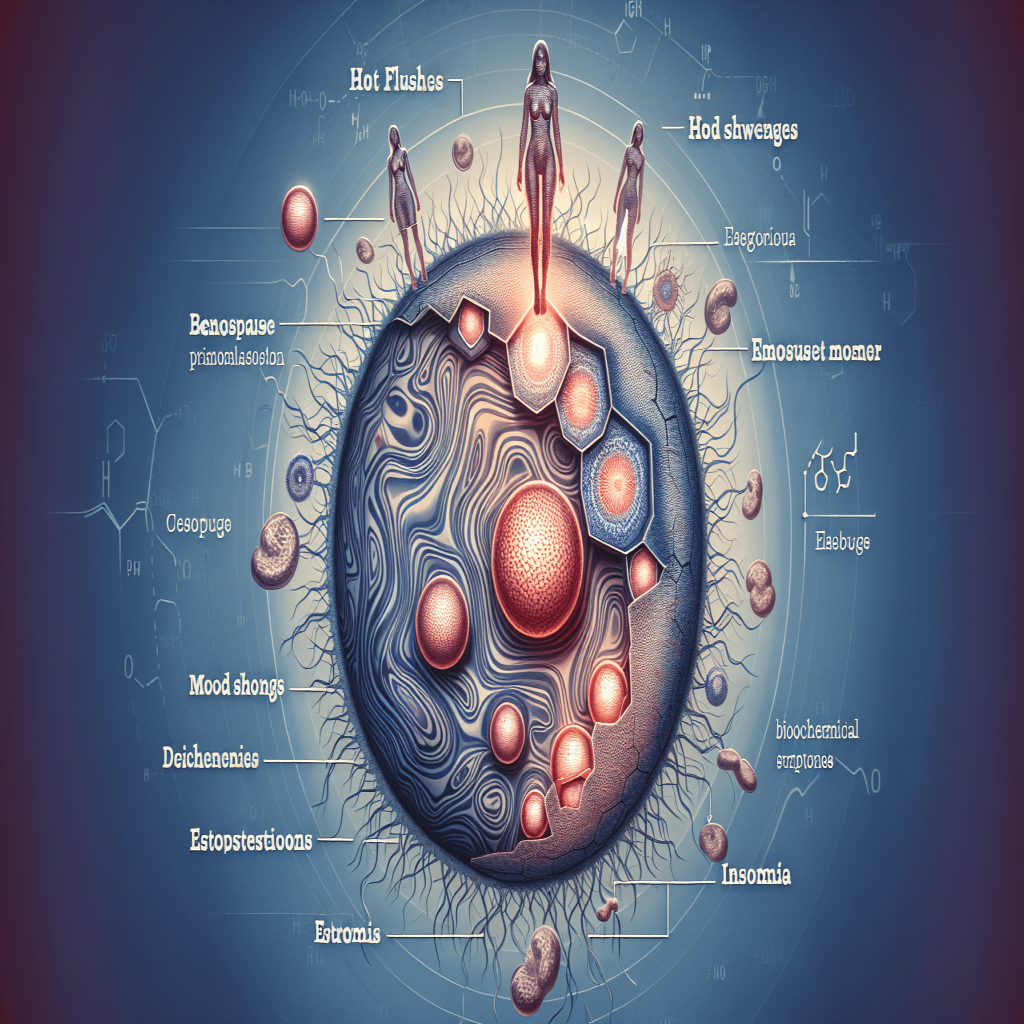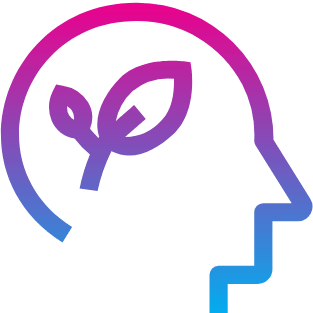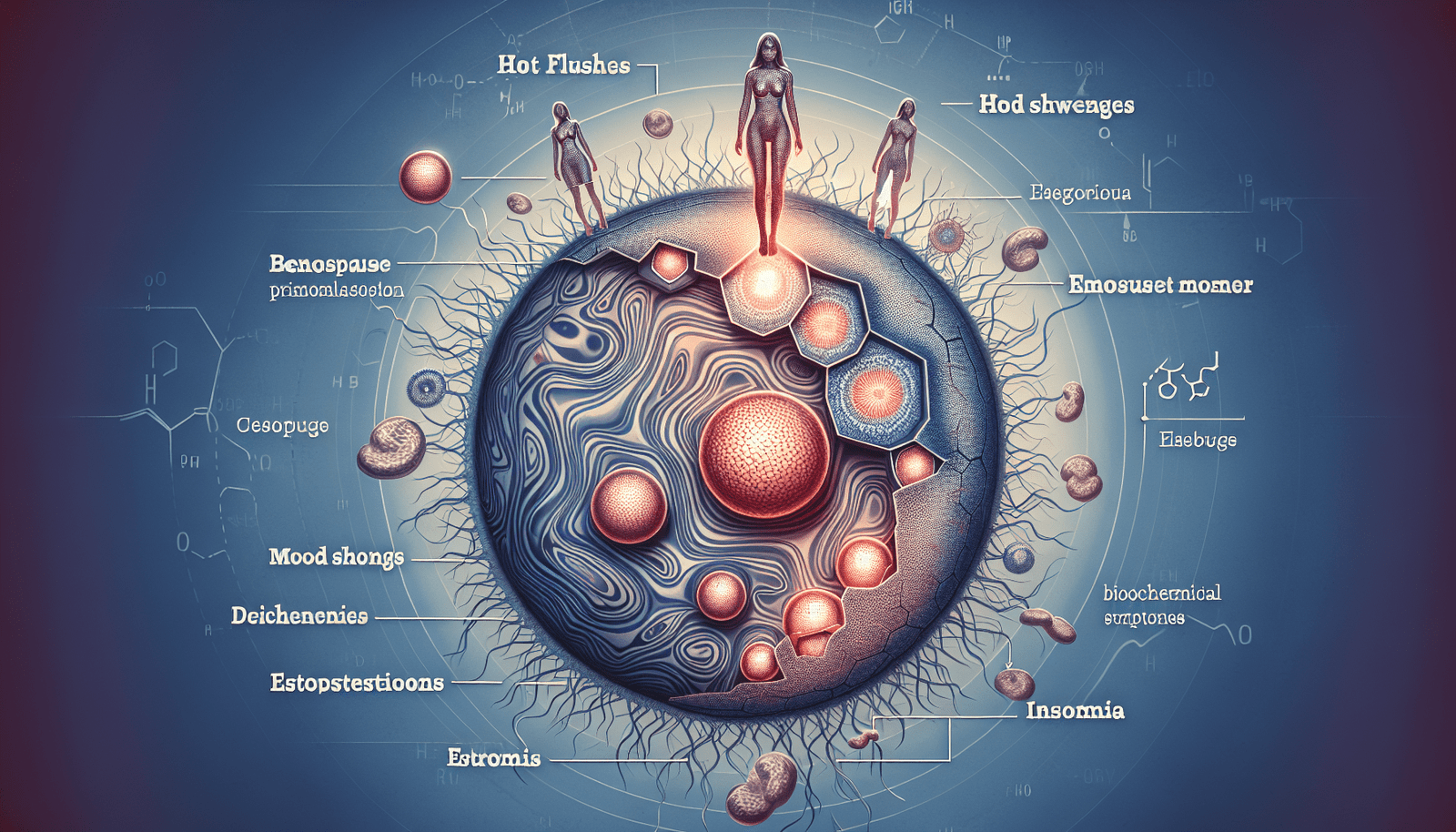Did you know that the decline of estrogen in your body during menopause can have a significant impact on your symptoms? While many people understand that menopause is caused by a decrease in estrogen levels, what they often don’t realize is just how rapidly estrogen declines in the brain. To effectively manage your symptoms, it’s crucial to address the reduction of estrogen happening in your brain. But before we delve into that, let’s first understand how estrogen triggers menopause symptoms. Estrogen is not just the “female sex hormone,” but a hormone that plays a crucial role in regulating the menstrual cycle, reproduction, and even bone density. As estrogen levels take a nosedive after the age of 40, traditional treatments may not work effectively for everyone. So, what did doctors discover about the decline of estrogen in women’s bodies? It turns out that the brain loses the most amount of estrogen, which sheds light on why certain treatments may not be as effective. If you’re experiencing menopause weight gain, there may be specific medical solutions to help you address this concern.

Understanding Estrogen Decline in Menopause
Estrogen is a hormone that is present in both women and men, but it plays a critical role in the female body. In women, estrogen regulates the menstrual cycle and is essential for reproduction. However, as women age and reach menopause, estrogen levels begin to decline rapidly. This decline in estrogen can have a significant impact on menopause symptoms and overall health.
Symptoms Triggered by Estrogen Decline
The decline in estrogen during menopause can lead to a variety of symptoms that can significantly affect a woman’s quality of life. Some common symptoms include changes in the menstrual cycle, infertility, joint discomfort, and loss of bone density. This decline in estrogen can also impact hormone production, growth factors, and metabolic factors, further exacerbating menopause symptoms.
Estrogen Decline in the Brain
While estrogen decline affects the entire body, the brain is the specific part of the body that loses the most estrogen. This decline in estrogen in the brain can contribute to various symptoms and changes in cognitive function. Understanding the effects of estrogen decline in the brain is crucial for addressing menopause symptoms effectively.

Traditional Treatments for Menopause
Traditional treatments for menopause, such as hormone replacement therapy, have been widely used to manage symptoms. However, these treatments don’t work for everyone due to the individual variations in estrogen decline and the challenges in addressing this decline. More research is needed to fully understand the effects of estrogen decline in women’s bodies and to develop more effective treatments.
Managing Menopause Symptoms
There are various approaches to managing menopause symptoms, including hormone replacement therapy, alternative treatments, lifestyle changes, exercise, dietary considerations, and supplements. Hormone replacement therapy can help alleviate symptoms by replacing the declining estrogen levels. Alternative treatments, such as herbal remedies and supplements, can also provide relief for some women. Adopting a healthy lifestyle, engaging in regular physical activity, and making dietary modifications can also contribute to managing menopause symptoms effectively.
Effect of Estrogen Decline on Weight Gain during Menopause
Estrogen decline can also contribute to weight gain during menopause. Understanding the link between estrogen decline and weight gain is crucial for developing effective strategies to manage weight. Factors such as changes in metabolism, hormone imbalances, and lifestyle habits can contribute to menopausal weight gain. While traditional medicine can help manage weight gain, alternative approaches, such as dietary modifications and exercise, can also be effective in managing weight during menopause.
Addressing Estrogen Decline for Overall Health
Addressing estrogen decline is not only important for managing menopause symptoms but also for overall health and well-being. Managing estrogen decline can have various benefits, including promoting bone health, protecting cognitive function, supporting emotional well-being, and preventing other health conditions. Prevention and early intervention are key in addressing estrogen decline and its long-term effects on women’s health.
Estrogen Replacement Therapy
Estrogen replacement therapy is a common treatment for managing menopause symptoms. It involves the use of medications that contain estrogen to replace the declining levels in the body. There are different types of estrogen replacement therapy available, including oral, transdermal, and vaginal options. While hormone replacement therapy can provide relief from menopause symptoms, it also comes with potential risks and considerations that need to be discussed with a healthcare provider.
Natural Approaches to Managing Estrogen Decline
In addition to traditional treatments, there are also natural approaches to managing estrogen decline and menopause symptoms. Herbal remedies and supplements, such as black cohosh and soy isoflavones, can provide relief for some women. Making dietary modifications, engaging in regular physical activity, practicing stress management techniques, and ensuring good sleep hygiene can also contribute to managing estrogen decline naturally.
Conclusion
Understanding the impact of estrogen decline on menopause symptoms is crucial for effectively managing this phase of life. Addressing estrogen reduction in the brain and exploring different treatment options, including traditional and natural approaches, can help alleviate symptoms and promote overall health and well-being. It is important to take a holistic approach to managing menopause symptoms and to consult with a healthcare professional to determine the best course of action for each individual.




